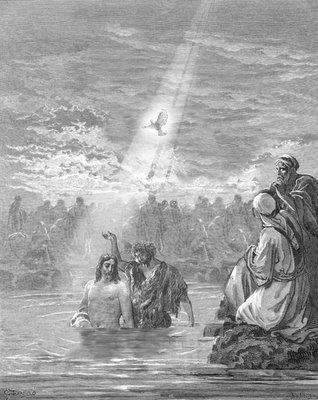7. The Election (proper)

.... Bearing in mind the good pleasure of God in glorifying Himself, and the mystery of His will in accomplishing this glorification through Jesus, the next insight should come as no surprise to anyone. For after this, God begins His election.
.
.... According to both Calvinism and Arminianism, God has chosen certain persons, from before the foundation of the world, whom He would one day call to Himself for the purpose of their salvation. These persons are referred to as ‘the elect,’ or ‘the chosen’ (based on the same underlying Greek word, eklektos). However, neither system has fully considered the mystery of God’s will, that He be glorified through His Son alone, so they have not viewed the election from the perspective of Christ:
.... According to both Calvinism and Arminianism, God has chosen certain persons, from before the foundation of the world, whom He would one day call to Himself for the purpose of their salvation. These persons are referred to as ‘the elect,’ or ‘the chosen’ (based on the same underlying Greek word, eklektos). However, neither system has fully considered the mystery of God’s will, that He be glorified through His Son alone, so they have not viewed the election from the perspective of Christ:
.... "Behold! My Servant whom I uphold, My Elect One in whom My soul delights!"
(Is 42:1)
.... "I delight to do Your will, O My God, and Your law is within My heart."
(Ps 40:8)
.... Traditionally, both systems have viewed the election as a process without criteria and without regard to our personal merit. But with reference to Section 6 and the two quotations above, we would more properly conclude the opposite: that the election took place on the basis of absolute merit, and as such it resulted in the choosing of only one Person: Jesus Christ the righteous. For He had this testimony from of old, that the Father delighted in Him.
.
.... Borrowing a principle of interpretation from Gal 3:16 and 29, let us carefully note that God does not refer to Jesus as ‘One of the elect,’ as if there were many, but ‘My Elect One,’ which is only one, who is Christ alone. For He alone is the Chosen One of God, and if we abide in Him through faith we shall become elect in Him:
.... Borrowing a principle of interpretation from Gal 3:16 and 29, let us carefully note that God does not refer to Jesus as ‘One of the elect,’ as if there were many, but ‘My Elect One,’ which is only one, who is Christ alone. For He alone is the Chosen One of God, and if we abide in Him through faith we shall become elect in Him:
.... "Just as He chose us in Him from before the foundation of the world."
(Eph 1:4)
.... Or again:
.... " . . . but Christ is all and in all. Therefore, as the elect of God . . . "
(Col 3:11-12)
.... "For all the promises of God in Him are Yes, and in Him Amen, to the glory of God through us."
(2 Cor 1:20)
.... Therefore the election of God resulted in the selection of Christ alone, and it extends to us only through trusting in Jesus, the Chosen One, and being joined to Him. But how is this so? Remember that when we believe we become one spirit with Him (1 Cor 6:17). Think of Him as the tree of salvation, and we are grafted into Him through believing the gospel (as in Rom 11:19). Another helpful analogy may be found at this link, and a third analogy at this link.
. .... This brings a dynamic change in the traditional understanding of this subject. None of us are saved because we are elect; but rather, we are elect in Him because we are saved.
.
.
.... Traditionally, both Calvinism and Arminianism have placed election before all other subjects in soteriology (except foreknowledge), when speaking of a chronological procession of events. But throughout Scripture, election is actually shown to follow such topics as foreknowledge, sanctification of the Spirit, (1 Peter 1:2), abiding in Christ (Col 3:11-12), predestination itself (Eph 1:4-5), calling (2 Peter 1:10), hearing the gospel (1 Thes 1:4-5) and other considerations, in support of the concept described here.

0 Comments:
Post a Comment
<< Home